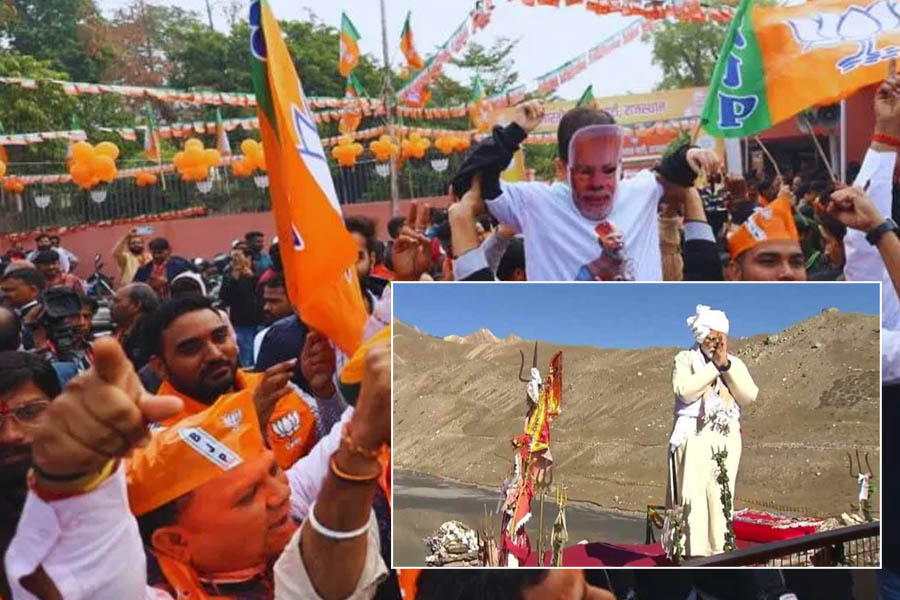
India's political landscape has witnessed a seismic shift in the wake of recent state elections, underscoring the deepening political divide between the country's northern heartland and the more prosperous south. The Bharatiya Janata Party (BJP), led by Prime Minister Narendra Modi, secured resounding victories in the northern states of Rajasthan, Madhya Pradesh, and Chhattisgarh, dealing a blow to the Congress party's hopes of resurgence in the Hindi-speaking "cow belt." However, the south told a different story, with Congress making significant gains in Telangana, emphasizing the limited appeal of the BJP's Hindu-centric ideology in the region.
BJP's Northern Triumphs:
The victories in Rajasthan and Madhya Pradesh, the most populous among the five states, were crucial for the BJP. Together, these states hold 54 seats in the lower house of the national parliament, making them influential players in the political landscape. PM Modi's emphasis on "Hindutva" ideology, coupled with promises of good governance and development, resonated with voters in these states. The BJP's efficient election strategies, organizational prowess, and message discipline played pivotal roles, overshadowing internal divisions within the Congress.
The Southern Challenge:
In stark contrast, the southern states are proving to be challenging terrain for the BJP. Congress's triumph in Telangana, a prosperous state with a vibrant technology hub in Hyderabad, reflects the party's ability to connect with the electorate despite facing a regional party rather than the BJP. The failure to make inroads in Telangana, coupled with the loss to Congress in Karnataka earlier, underscores the BJP's struggle to gain a foothold in the south. The party's Hindu-centric ideology appears to have limited appeal in a region with diverse linguistic and cultural identities.
BJP's National Narrative:
Despite regional variations, PM Modi and the BJP leadership are touting the results as a vindication of their governance model. The party credits Modi for India's recent economic growth, infrastructure development, and decisive actions against corruption. The resounding victories in the north strengthen Modi's position as a formidable leader, bolstered by the party's media machinery ensuring positive coverage across various platforms.
Concerns and Criticisms:
However, the BJP's opponents, particularly in the southern and western states, voice concerns over the erosion of India's secular fabric. Accusations of pandering to Hindu sentiments, discrimination against minorities, and attempts to concentrate power in the executive branch have fueled discontent. Critics argue that Modi's government has undermined judicial independence, suppressed local media, and allegedly used state resources to target political opponents.
Looking Ahead to the General Election:
While state election results are not always indicative of national outcomes, the BJP's successes in the northern states are causing anxiety among its opponents. The party's dominance in the north and northwest was a crucial factor in its 2019 general election victory, and a repeat performance will be necessary for a majority in the upcoming polls. The southern states, often considered "out of bounds" for the BJP, pose a significant challenge, potentially shaping the political narrative in the lead-up to the general election.
As India inches closer to the next general election, the political map of the country is marked by contrasting victories and challenges for the BJP. The party's triumph in the north has bolstered its position, while the southern states remain a battleground where the BJP's ideological appeal is put to the test. The results indicate that the road ahead is fraught with challenges for both the ruling BJP and the opposition Congress, setting the stage for a keenly contested political landscape in the coming months.